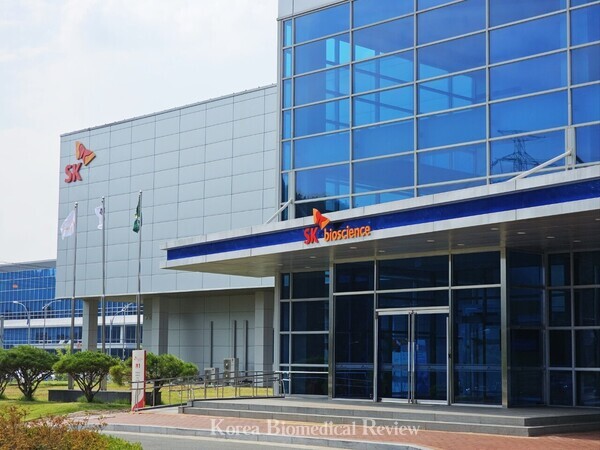SK bioscience reported a sharp increase in revenue for the first quarter of 2025, driven by the consolidation of Germany-based IDT Biologika’s results following its acquisition last year.

The company also reduced its operating loss despite ongoing investments in research and development and manufacturing facilities.
According to a regulatory filing released Wednesday, SK bioscience posted consolidated revenue of 154.6 billion won ($110.5 million) and an operating loss of 15.1 billion won in the first quarter. This marks a 593.2 percent increase in revenue compared to the same period last year, while the operating loss also narrowed by 46 percent from the 2024 first quarter loss of 28.1 billion won.
The company attributed the revenue growth and narrowing losses to the continued profitability of IDT Biologika and stronger sales of its proprietary vaccines. IDT, which had reported consecutive operating losses until the third quarter of 2024, turned profitable in the fourth quarter following its acquisition and maintained this trend into the first quarter of 2025.
SK bioscience said the improvement was due to operational efficiencies and increased production volumes at IDT facilities. IDT aims to exceed annual revenue of 410 billion won this year as part of its growth targets.
Meanwhile, SK bioscience’s flu vaccine SKYCellflu and varicella vaccine SKYVaricella contributed to revenue gains.
SKYCellflu expanded exports to the Southern Hemisphere, while SKYVaricella secured an additional procurement contract with the Pan American Health Organization (PAHO), extending supply commitments in Latin America through 2027.
The company’s shingles vaccine SKYZoster also increased supply in Korea and began exploring export opportunities in Southeast Asia.
Strategic partnerships have also bolstered SK bioscience’s performance.
The company recently expanded its collaboration with Sanofi Korea, securing co-marketing and distribution rights for the six-in-one pediatric vaccine Hexaxim and the RSV antibody Beyfortus.
The six-in-one pediatric vaccine Hexaxim was included in Korea’s National Immunization Program in January, and Beyfortus began administration to infants in February, with sales expected to grow in the second half of the year.
SK bioscience continues to invest in pipeline development, with its pneumococcal conjugate vaccine candidate, co-developed with Sanofi, undergoing a global phase 3 trial, and the development initiation of next-generation pneumococcal vaccines for infants and adults.
The company is also advancing clinical trials of a Japanese encephalitis vaccine candidate using its mRNA platform and is expanding its mRNA technology portfolio following recent intellectual property developments, and was recently selected for a government-supported project to develop an avian influenza (H5N1) vaccine, with plans to enter phase 1/2 clinical trials by late 2026.
Looking ahead, SK bioscience said it aims to improve profitability through further market expansion for its vaccines, stable growth of IDT, and continued R&D and partnerships.
Related articles
- SK bioscience joins KDCA project to develop cell-cultured bird flu vaccine
- SK bioscience defeats Moderna in patent dispute in Korea, clears path for mRNA vaccine
- SK bioscience appoints former MFDS head Lee as outside director
- SK bioscience prevails in Supreme Court case against Pfizer over pneumococcal vaccine patent
- IDT Biologika expands global CDMO presence with active participation in international biotech events
- SK bioscience completes plant expansion in Andong
- SK bioscience to test flu shot with immune booster for older adults in phase 1/2 trial

